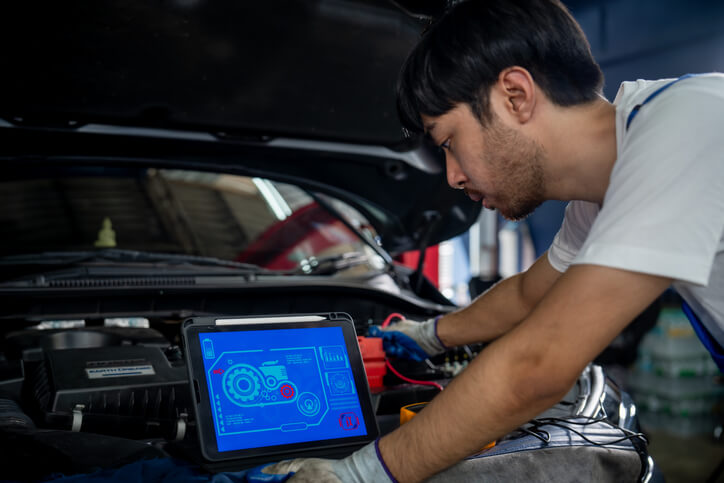Understanding Torque Converters: What Every Automotive School Technician Should Know
For every student stepping into the world of automatic transmissions, the torque converter is one of the most important components to understand. It’s the unsung hero of power transfer, helping vehicles smoothly shift gears without a clutch pedal. If you’re enrolled in an automotive school, understanding how torque converters work and how to diagnose their failures is a must.
This blog post explores why this part is so critical and how the right automotive training prepares future technicians to handle it with confidence.
What Is a Torque Converter?
In simple terms, a torque converter is a type of fluid coupling that connects the engine to the transmission in vehicles with automatic gearboxes. Its main job is to allow the engine to keep running even when the vehicle is stationary, like when you’re stopped at a red light. It also multiplies torque when accelerating from a standstill, which gives the vehicle a power boost.
The torque converter consists of three main components:
- Pump: Spins with the engine and pushes transmission fluid toward the turbine.
- Turbine: Connected to the transmission, it receives the fluid from the pump, transferring power to the wheels.
- Stator: Redirects fluid returning from the turbine, increasing efficiency and torque output.
Together, these elements allow for seamless acceleration and deceleration, making torque converters essential for smooth automatic driving.

Common Torque Converter Issues to Know
Understanding the function of the torque converter is only half the battle. Students at a top auto mechanic school like ATC Montreal also explore signs of malfunction. Faulty torque converters can lead to a variety of problems that affect drivability and fuel efficiency.
Here are some of the most common issues:
- Slipping: When the converter fails to properly transfer power, the vehicle may feel sluggish or unresponsive.
- Overheating: Caused by internal clogs, worn bearings, or low fluid levels.
- Shuddering: A noticeable vibration during acceleration or while driving at low speeds.
- Delayed shifting: The transmission takes longer than usual to change gears, often pointing to torque converter failure.
Knowing how to diagnose these symptoms using scan tools, pressure tests, and road testing is a major component of automotive training.
Hands-on Learning at Our Automotive School
At ATC Montreal, students are trained not just in theory, but in real-world application. Torque converter diagnostics are experienced as part of the curriculum that blends traditional mechanical knowledge with modern vehicle technologies. Instructors guide students through hands-on labs where they inspect, remove, and reassemble a variety of components from a variety of vehicles.
Whether it’s checking for leaks, evaluating torque converter clutch (TCC) operation, or replacing worn seals, students gain the confidence to service this critical system. That level of preparation is what separates a great automotive school from a good one.
Career Benefits of Understanding Torque Converters
Today’s employers expect technicians to be familiar with the inner workings of complex systems, especially in automatic and hybrid vehicles. If you’re aiming to work at a dealership, repair shop, or specialty transmission service, deep knowledge of torque converters can give you an edge.

Vehicles with CVTs or electric drivetrains often do not use traditional torque converters, but understanding fluid coupling helps students grasp core power transfer concepts across drivetrain types.
Start Your Journey With ATC Montreal
If you’re fascinated by the mechanical logic behind what makes a car run smoothly, the auto mechanic school at ATC Montreal will give you the skills and confidence to succeed. With expert instructors, real-world training, and cutting-edge facilities, your career starts on solid ground.
Whether it’s torque converters or full engine diagnostics, you’ll graduate with the knowledge to thrive in a constantly evolving automotive industry.
Are you looking for comprehensive automotive training?
Contact ATC Montreal for more information.


